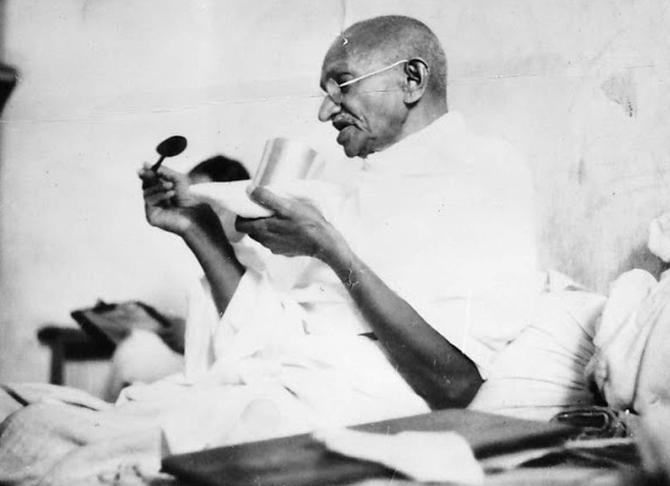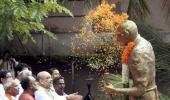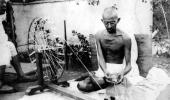The role and contribution of Mahatma Gandhi in India's freedom struggle is well documented and he was "quite a complicated being", Union Minister Hardeep Singh Puri said on Wednesday.

"He had actually asked for mobilisation of India's help for the war effort during the First World War," Puri said.
The minister was addressing an event organised in Delhi to release a book, titled The Reverse Swing - Colonialism to Cooperation, authored by veteran journalist and Prasar Bharati board member Ashok Tandon.
"One chapter (in the book) is on Mahatma Gandhi - an apostle of peace for Britons. We are all disciples of the Father of the Nation. His role in building India, creating a link between an elitist national movement and the masses, fusing that, (all that) is very well documented," Puri said.
"But let me tell you Mahatma himself was quite a complicated being," he said, adding, "While still in the UK, he (Gandhi) actually asked for a mobilisation of India's help for the war effort in the First World War. That's well documented."
Puri said that Gandhi's "initial life" in the UK, his education prepared him for an "English-style barrister".
"When he goes to South Africa, it is then the Gandhi that we know and the Gandhi who contributed to our national movement begins to mature," he added.
Referring to the content of the book, Puri said there is a chapter in it about how India overtook the UK to become the world's fifth largest economy.
"I think most of us relish that," he said, adding, "When we become the third largest economy and we overtake Japan and Germany, I don't think we will enjoy that much."
The Union minister said the Indo-British cooperation in the “aviation sector, tele-communication, all these” are relevant in understanding the dynamics of the current bilateral relationship between India and the UK.
The Indian-origin community in the UK has given “shape and content” to India's relationship with the UK far more than what a diaspora can do elsewhere, he said.
“I hope the India-UK free trade agreement actually sees the light of the day,” he said.
Participating in a panel discussion on the book, Tondon, the author, talked about a chapter on the Jallianwala Bagh Massacre and said many, from the Queen to the British Prime Minister, have expressed regret over the incident but they have never officially apologised for it.
"Is it something to do with the British system that when you apologised for some crime and there is a provision for (giving) compensation?” he asked.











 © 2025
© 2025